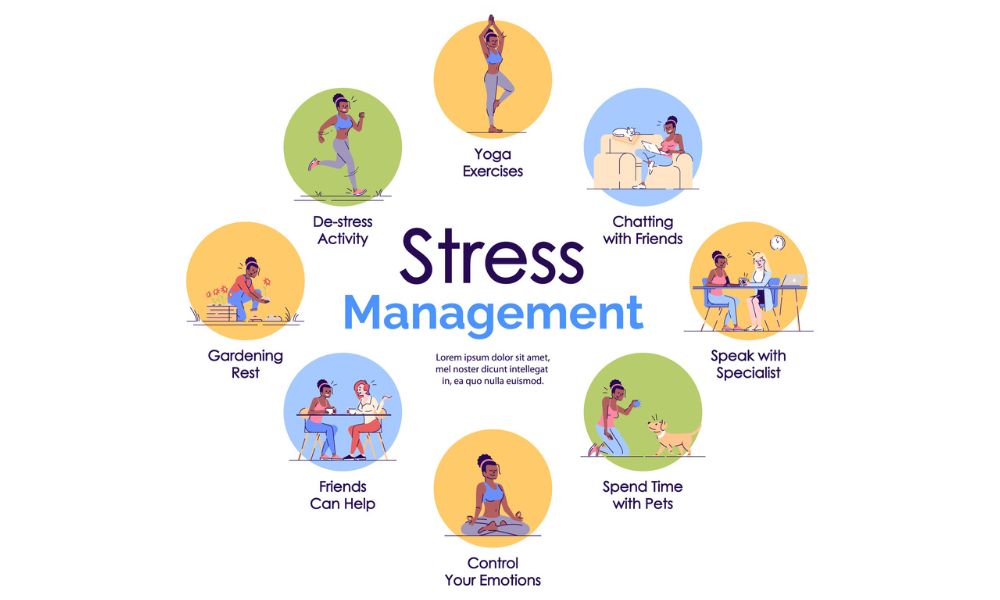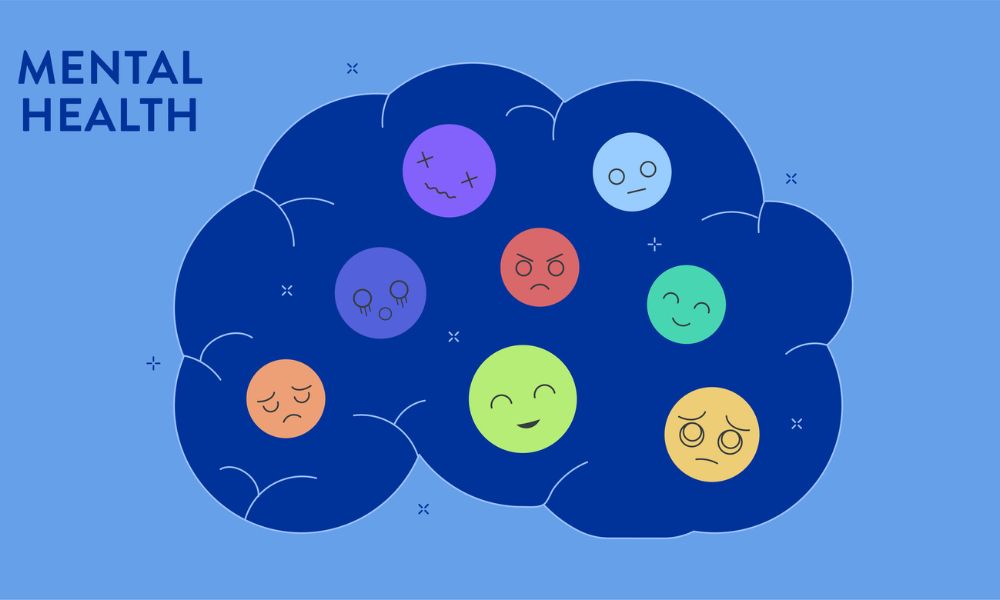Anger is a natural emotion that we all experience. Understanding the roots and triggers of anger is essential for effectively managing it. When we recognise what makes us angry, we take the first step towards controlling our reactions and improving our relationships. Ignoring anger can lead to negative outcomes, both physically and emotionally.

In our exploration of this powerful emotion, we will look into common triggers and how they affect our behaviour. We will also discuss ways to express anger constructively, so it doesn’t harm our health or relationships. By understanding anger better, we empower ourselves to handle it in healthier ways.
Key Takeaways
- Recognising triggers helps us manage our anger effectively.
- Constructive expression of anger can improve our well-being.
- Seeking help is important when anger feels overwhelming.
The Psychology of Anger

Anger is a complex emotion with deep roots in our biology and psychology. It serves important functions that affect our behaviour and interactions. By exploring its evolutionary role, cognitive responses, and physiological mechanisms, we can better understand how anger operates within us.
Anger's Evolutionary Role
Anger has an evolutionary purpose, helping us respond to threats. Historically, it prepared early humans to fight or flee from danger. When faced with aggression or competition, anger could enhance our chances of survival.
In modern life, this instinct still plays a role. For example, when we feel wronged or threatened, anger alerts us to address the situation. This can help protect our boundaries and ensure our needs are met in social contexts.
Cognitive Responses to Threats
When we perceive a threat, our cognitive processes kick in. This often leads us to analyse the situation and determine our response. Our thoughts may include self-defence, seeking justice, or asserting control.
These cognitive responses can be influenced by past experiences. If an event has triggered anger before, we may react more strongly in similar situations. Recognising these patterns helps us manage our anger by changing how we interpret threats.
Physiological Mechanisms of Anger
Physiological responses accompany our anger, involving hormonal and neurological changes. When we feel angry, our body prepares for action.
Stress hormones like adrenaline flood our system. Our heart rate increases, muscles tense, and we may breathe faster. This response can be useful for immediate situations but harmful if it becomes chronic.
Understanding these physiological effects enables us to recognise when anger is becoming overwhelming. We can then implement strategies, like deep breathing or mindfulness, to help calm our responses and regain control.
Common Triggers of Anger

We often encounter specific situations that can trigger anger. By recognising these triggers, we can begin to manage our emotions more effectively. Let's explore some common sources of anger.
Interpersonal Conflicts
Interpersonal conflicts are one of the most frequent triggers for anger. These can arise from arguments, misunderstandings, or even perceived disrespect from friends, family, or colleagues.
When we feel that our opinions are not valued or that someone is attacking us verbally, anger can spike.
It's important to communicate openly in these situations. Addressing concerns calmly can prevent escalation and help us resolve conflicts before they lead to anger.
Frustrations in Daily Life
Daily frustrations are also significant triggers. These can include being stuck in traffic, dealing with long queues, or facing unexpected delays.
Such setbacks can leave us feeling powerless, which often leads to irritability and anger.
To manage these feelings, we can practice mindfulness or develop coping strategies like taking deep breaths or counting to ten. Recognising that some frustrations are beyond our control helps us maintain our composure.
Perceived Injustices
Perceived injustices can provoke strong feelings of anger. This might involve situations where we believe others are being treated unfairly or when we feel slighted.
When we see people breaking rules or behaving unkindly, our sense of justice can trigger an emotional response.
To navigate this anger, we can focus on constructive actions, like advocating for change. Understanding our feelings can also help us avoid reactive outbursts when faced with such situations.
Expressing Anger Constructively

To express anger constructively, we can use specific strategies that help us communicate effectively, set clear boundaries, and work through problems. These techniques allow us to manage our emotions while maintaining healthy relationships.
Effective Communication Strategies
Clear communication is key when expressing anger. We should focus on "I" statements to explain our feelings without blaming others. For example, instead of saying, "You make me angry," we can say, "I feel upset when my opinions are not considered."
Active listening plays a big role too. When someone responds, we should listen carefully and show that we understand their point of view. This helps to reduce tension and encourages open dialogue.
Using a calm tone and appropriate body language is also important. We should maintain eye contact and avoid crossing our arms, as this can appear defensive. These strategies create a safe space for discussing emotions.
Setting Boundaries
Setting clear boundaries is essential for managing anger. We need to define what behaviours are acceptable and which are not. This helps prevent situations that may trigger anger and allows us to feel in control.
It’s important to communicate our boundaries clearly and assertively. For instance, we could say, "I need some time to cool down before discussing this." This statement sets a boundary without escalating the situation.
We should also be prepared to enforce these boundaries. If someone crosses them, we need to remind them gently but firmly. This shows that we value our emotional wellbeing and will not tolerate unacceptable behaviour.
Problem-Solving Techniques
Addressing the root cause of our anger is vital. We should take a step back to identify what is triggering our feelings. This can involve asking ourselves questions like, "What can I do to resolve this issue?" or "Is this something I can change?"
We can also brainstorm potential solutions together. This collaborative approach helps to shift our focus from anger to finding constructive ways to deal with the problem.
Additionally, we could list our options and evaluate the pros and cons of each. This process allows us to choose the best course of action calmly. Seeking support from friends or professionals can also provide valuable insights and help us navigate our feelings.
The Impact of Anger on Health

Anger can profoundly affect our mental and physical health. Understanding these impacts is essential for us to manage our emotions effectively. Let's explore how anger influences our mental well-being, leads to physical health consequences, and brings about long-term psychological effects.
Mental Well-being
When we experience anger, our mental well-being often suffers. This emotion can lead to increased stress and anxiety, making it hard for us to enjoy life. Anger may trigger feelings of frustration and helplessness, which can impair our decision-making abilities.
Additionally, anger can strain our relationships. Frequent outbursts can push loved ones away, leading to loneliness or depression. We may find ourselves stuck in a cycle of anger that makes it difficult to cope with life's challenges. Seeking support through therapy or anger management strategies can help us regain control.
Physical Health Consequences
Anger does not only affect our minds; it also impacts our bodies. When we get angry, our heart rate and blood pressure rise. This puts us at risk for serious conditions, including heart disease and stroke.
Moreover, constant anger can weaken our immune system, making us more prone to illness. Chronic stress, which often accompanies anger, can lead to conditions like diabetes. We should recognise these signs and take steps to manage our anger for better physical health.
Long-Term Psychological Effects
Long-term anger can have significant psychological effects. We may develop chronic issues like anxiety disorders or depression as we become accustomed to living in a state of anger. The emotional toll can lead to a lack of motivation or a feeling of emptiness.
In some cases, unresolved anger can result in mental health issues such as post-traumatic stress disorder (PTSD). Seeking professional help is essential to address these long-term effects. Therapy can provide us with tools to process our anger constructively and improve our mental health.
Anger Management Techniques
Managing anger effectively is crucial for our emotional well-being. We can use various techniques to control our anger and respond to situations more calmly. Three key methods include relaxation techniques, cognitive behavioural approaches, and mindfulness practices.
Relaxation Methods
Relaxation techniques help us calm our bodies and minds when anger starts to rise. Simple strategies include deep breathing, progressive muscle relaxation, and visualisation.
-
Deep Breathing: We can breathe deeply by inhaling through our noses, holding our breath for a few seconds, and then exhaling slowly through our mouths. This helps reduce tension and lowers our heart rate.
-
Progressive Muscle Relaxation: We can tense and then relax different muscle groups, starting from our toes up to our heads. This method allows us to release physical tension that often accompanies anger.
-
Visualisation: Imagining a peaceful scene can also be effective. Whether it’s a quiet beach or a serene forest, visualising a calming place helps shift our focus away from anger.
Cognitive Behavioural Approaches
Cognitive behavioural approaches allow us to understand and change our thought patterns. By identifying negative thoughts that lead to anger, we can adjust our responses.
-
Identify Triggers: We should keep a journal to note situations that make us angry and how we react. Understanding these triggers is vital to managing our anger.
-
Reframe Thoughts: When we feel anger, it’s helpful to ask ourselves if our thoughts are rational. Reframing negative thoughts into more positive or realistic ones reduces the intensity of our anger.
-
Problem-Solving: Sometimes, addressing the root cause of our anger can help. We can discuss solutions to conflicts instead of letting frustration build up.
Mindfulness and Meditation
Mindfulness and meditation encourage us to focus on the present moment, which can lessen anger. Practising these techniques regularly builds our emotional resilience.
-
Mindfulness: By paying attention to our thoughts and feelings without judgment, we can create a space between feeling angry and reacting. This awareness helps us respond calmly.
-
Guided Meditation: We can use guided meditations that focus on anger management. Many resources are available, including apps and online videos, making it easier to incorporate this into our routines.
-
Consistent Practice: Regular mindfulness and meditation practice is key. By integrating these techniques into our daily lives, we strengthen our ability to manage anger effectively.
When to Seek Professional Help
Recognising when to seek professional help for anger issues is crucial for our wellbeing. There are specific signs and situations that indicate we may need additional support.
Recognising Uncontrolled Anger
We often notice signs of uncontrolled anger when our reactions become extreme or uncontrollable. If we frequently feel rage over minor issues or struggle to calm down after becoming angry, these can signal a problem.
Physical symptoms, such as increased heart rate, sweating, or shaking, may accompany our outbursts. Experiencing these reactions can interfere with our daily lives, impacting relationships and work. If we find ourselves expressing anger through aggression or violence towards others or ourselves, this is a serious indicator that professional help is necessary.
Therapeutic Interventions
Therapeutic interventions can be beneficial for those struggling with anger. Seeking help from a mental health professional allows us to explore the roots of our anger and develop healthier coping strategies.
Cognitive-behavioural therapy (CBT) is often effective in addressing anger issues. CBT helps us recognise thought patterns that lead to anger and teaches us how to change them. We can also benefit from individual therapy, where we focus on personal triggers and responses, or group therapy, which provides shared experiences and support from others dealing with similar issues.
Support Groups and Resources
Support groups can provide a valuable sense of community and understanding. Sharing our experiences in a safe space with others who face similar challenges can be healing.
We might find local or online support groups aimed specifically at anger management. These groups often offer guidance and practical tools for managing our emotions. In addition, numerous resources, such as books and websites, can help us better understand anger and learn effective strategies to cope with it. Seeking these resources can make a significant difference in our journey towards emotional health.
Preventative Strategies and Lifestyle Changes
To effectively manage anger, we can implement various preventative strategies and lifestyle changes. These approaches help build a strong foundation for emotional control and resilience in our daily lives.
Developing Emotional Resilience
Emotional resilience allows us to cope with stress and setbacks without feeling overwhelmed. We can enhance our resilience by practising mindfulness and awareness of our feelings. Regularly reflecting on our emotions can help us recognise triggers early.
Engaging in activities like journaling or talking to a friend can provide emotional release. Additionally, developing problem-solving skills can help us face challenges calmly.
We should also focus on fostering supportive relationships. Surrounding ourselves with understanding people can provide comfort during tough times.
Nutrition and Exercise
Maintaining a balanced diet and engaging in regular physical activity are crucial for managing anger. Proper nutrition can have a direct impact on our mood. Foods rich in omega-3 fatty acids, such as salmon and walnuts, can help boost our brain health and reduce irritability.
Staying hydrated is also important. Dehydration can lead to increased feelings of frustration.
Moreover, regular exercise can act as a powerful stress reliever. Activities like jogging or yoga release endorphins, which improve our mood. Establishing a consistent exercise routine can empower us to handle emotions more effectively.
Time Management and Organisation
Effective time management and organisation can significantly reduce stress, which helps us control our anger. We can begin by setting clear goals and priorities. Creating a detailed to-do list each day can help us stay focused and organised.
Allocating specific times for relaxation or leisure activities is essential. By allowing ourselves breaks, we can recharge and approach tasks with a clearer mind.
We should also learn to say no when we feel overwhelmed. Taking on too many commitments can escalate stress levels, making anger more likely to arise. By managing our time wisely, we can enjoy a calmer, more balanced life.
Frequently Asked Questions
In this section, we will address common questions regarding anger management. These queries explore practical steps, techniques, and methods we can use to understand and regulate our anger effectively.
What are the initial steps to take in controlling one's anger?
The first step in controlling anger is recognising the signs. We often feel physical changes like increased heart rate or tension. Acknowledging these symptoms allows us to take action before our anger escalates.
Next, we can practise deep breathing. Taking slow, deep breaths helps calm our body and mind. This simple technique can give us a moment to reflect before reacting.
What techniques can be utilised in anger management therapy?
Various techniques can enhance our understanding of anger. Cognitive-behavioural therapy (CBT) is one effective method. It helps us identify negative thought patterns and replace them with more positive responses.
Additionally, role-playing can be useful. By simulating interactions that trigger our anger, we can develop new responses. This practice can prepare us to face similar situations in real life.
What methods can one immediately apply to suppress anger?
In the heat of the moment, we can use grounding techniques to manage our anger. Focusing on our surroundings helps divert our attention. For instance, naming five things we see can help us regain control.
Physical activity is another immediate method. A quick walk or some simple stretches can release built-up tension. This physical release allows us to feel calmer.
How can one manage their anger within the dynamics of a relationship?
Managing anger in relationships involves open communication. We should express our feelings honestly but respectfully. Using "I" statements can help us communicate our needs without blaming others.
Active listening is also essential. By truly hearing our partner's perspective, we create a space for understanding. This mutual respect can help prevent misunderstandings that lead to anger.
Can you describe the five stages of processing and managing anger?
The five stages of processing anger include denial, frustration, anger, bargaining, and acceptance. We often start by denying our feelings, not wanting to confront them.
As frustration builds, we may feel intense anger. Next, we might attempt to bargain or reason with ourselves. Finally, acceptance allows us to acknowledge our feelings and decide on a constructive way to move forward.
How does psychology suggest one should regulate their anger?
Psychology emphasises self-awareness in anger regulation. We should take note of our triggers and our reactions. By keeping a journal, we can track these patterns and gain insights.
Moreover, cognitive restructuring is vital. This technique encourages us to challenge irrational thoughts linked to our anger. Reframing these thoughts helps us respond in healthier ways.





















